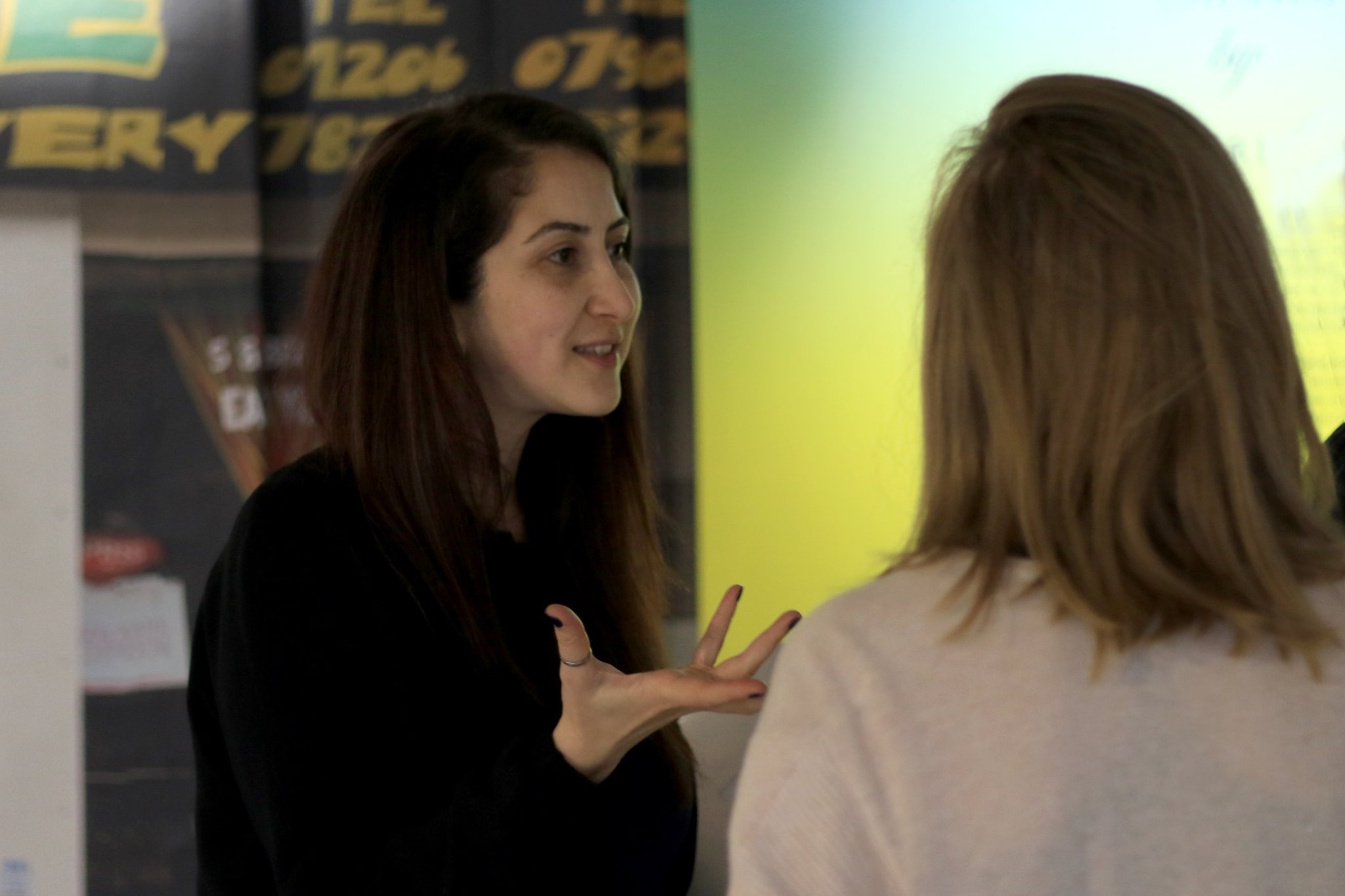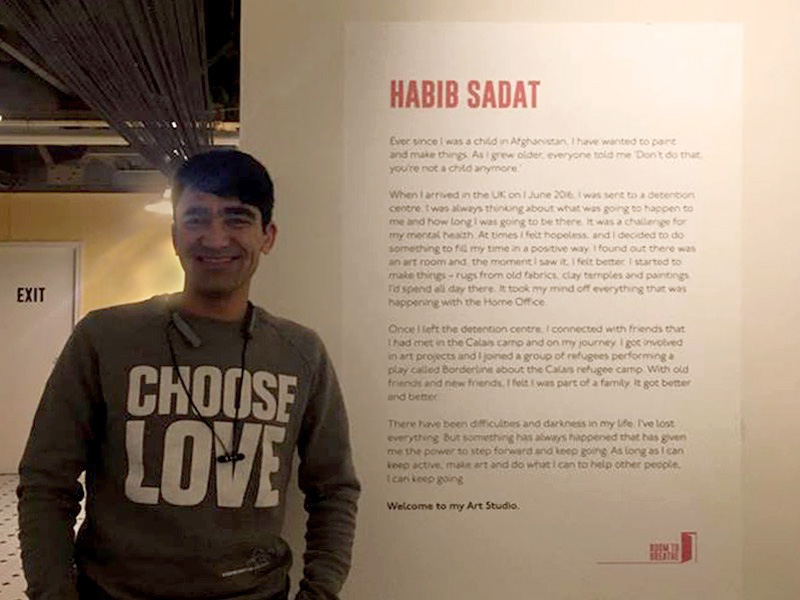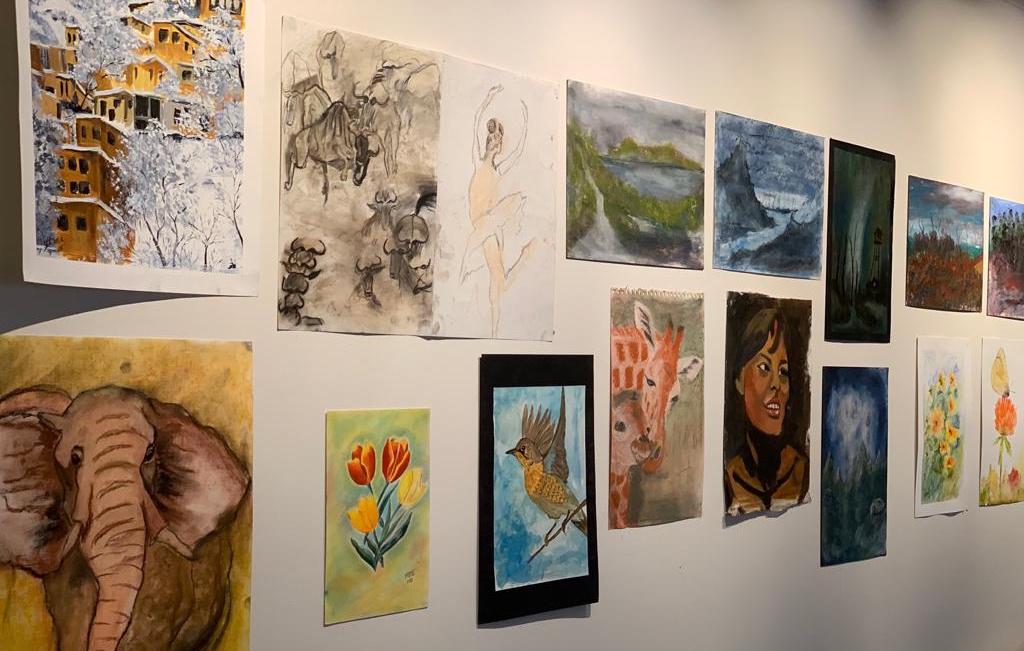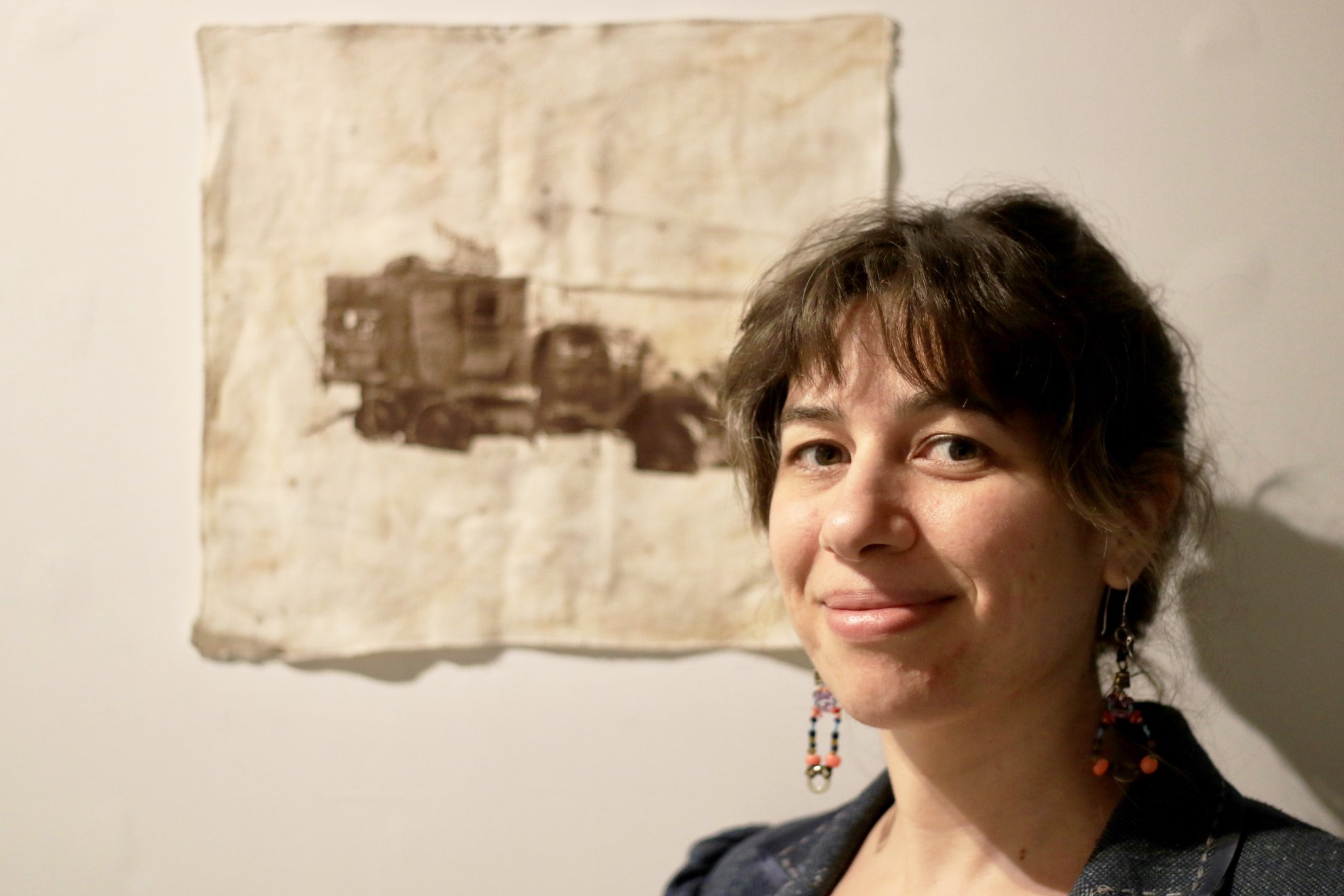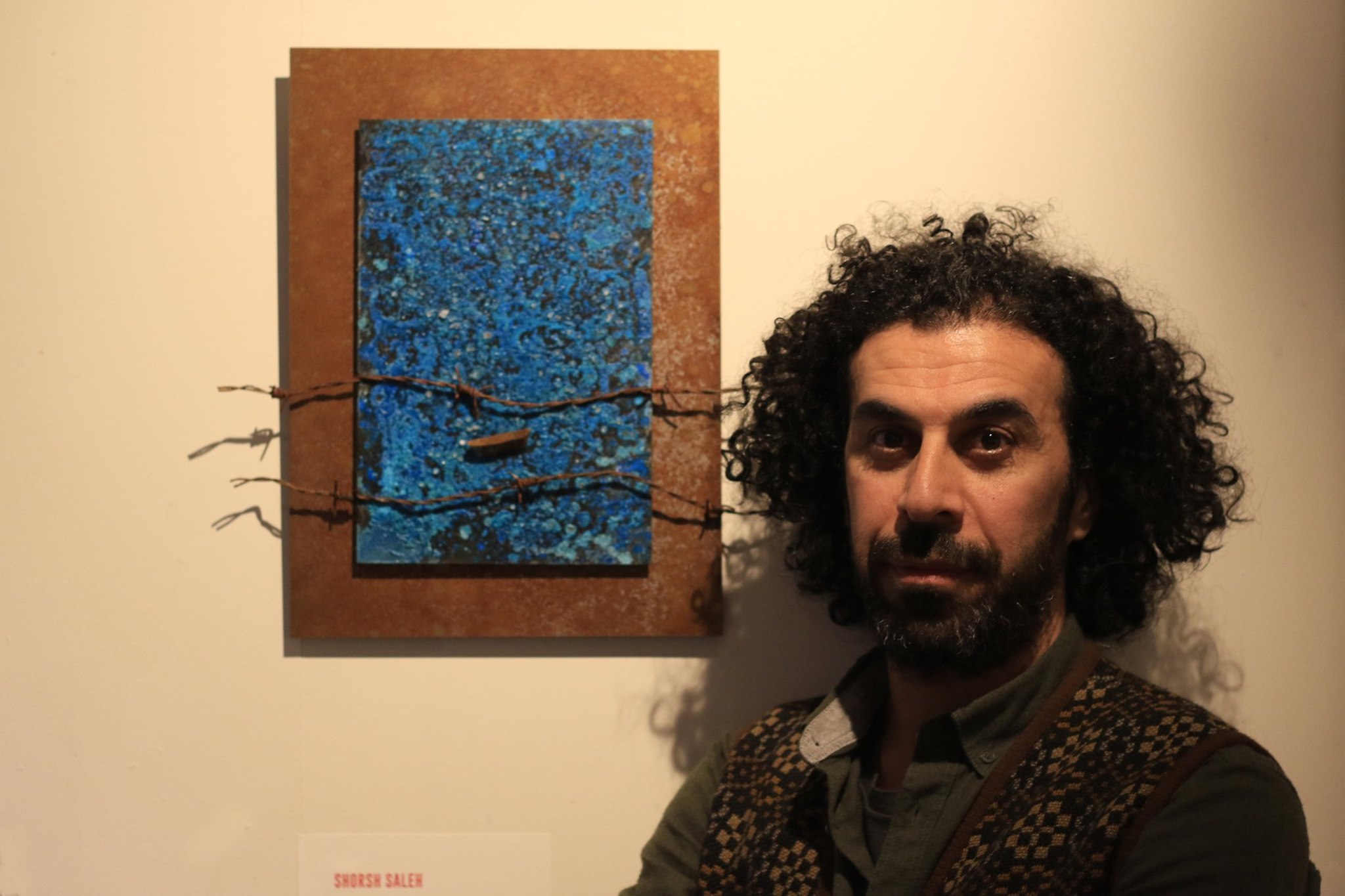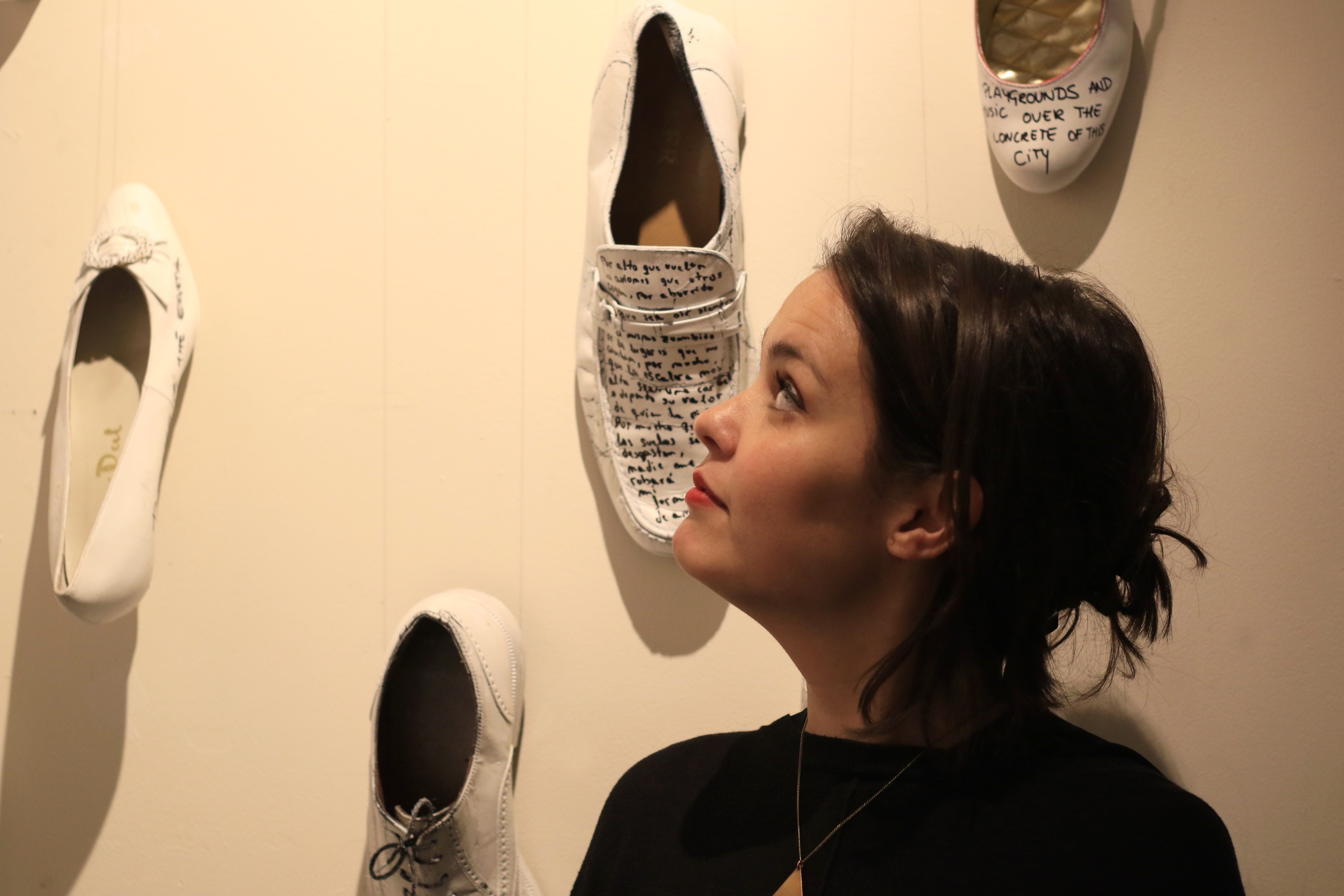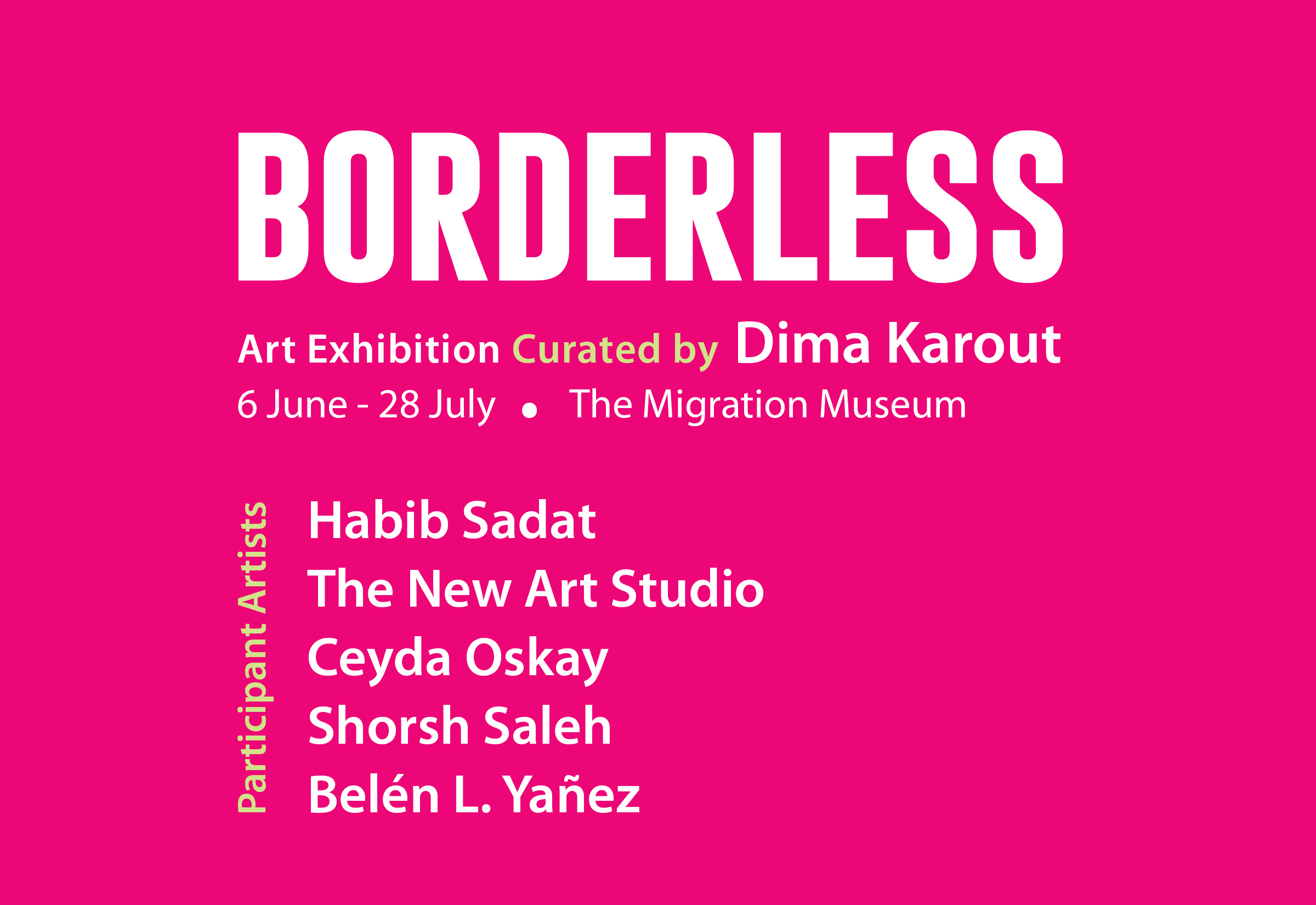Archives
26 August, 2019

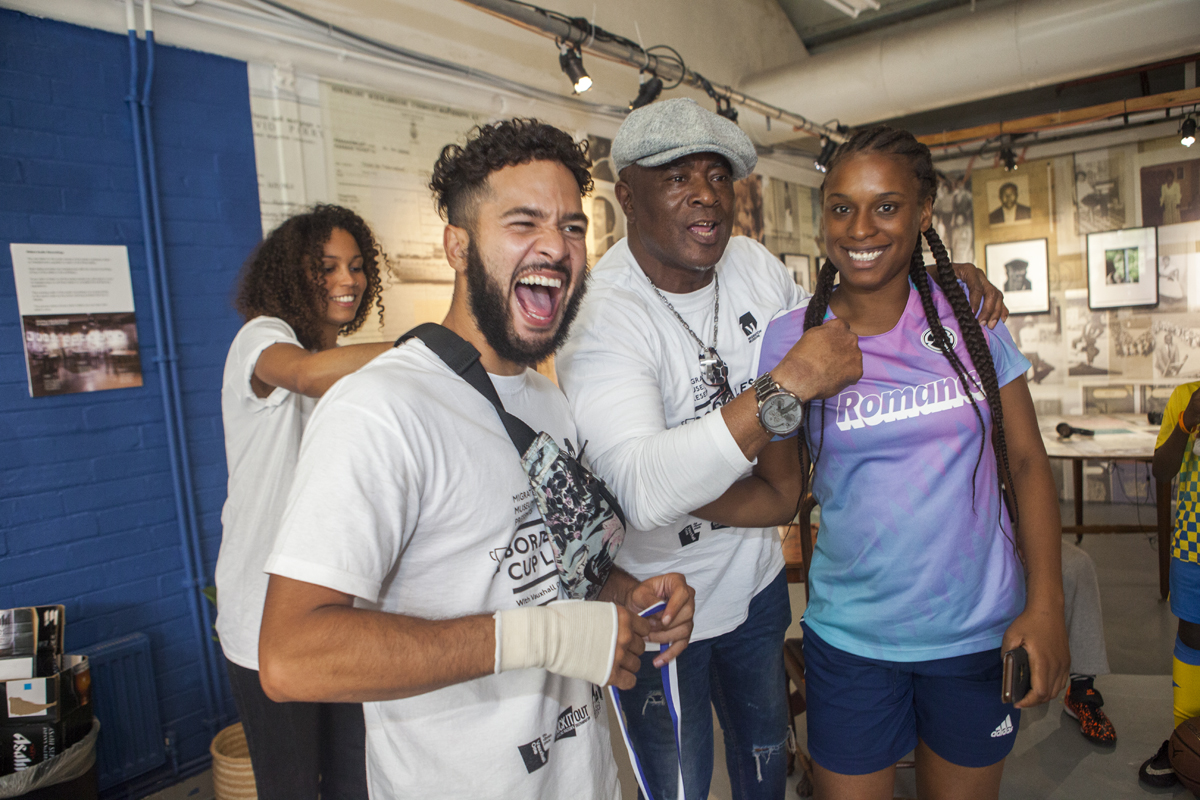
All images © Elzbieta Piekacz
On Saturday 17 August 2019, we joined forces with the Black Prince Trust (BPT), Vauxhall One and Kick It Out to present the first Borderless Cup Lambeth, an inclusive football and basketball tournament for Lambeth residents and community organisations.
At all levels, sport has the power to help us overcome divisions as we put aside our differences. When you’re on the football pitch or the basketball court it doesn’t matter who you are or where you’re from – you pick up a ball and you’re in play.
The Borderless Cup Tournaments are about recognising these connections between migration, diversity, and sport, and moving beyond the ‘borders’ that divide us in our everyday life to celebrate #AllOurStories.
And that’s exactly what participants and bystanders at the first Borderless Cup Lambeth did! Over 80 local players took part in the football and basketball tournaments.
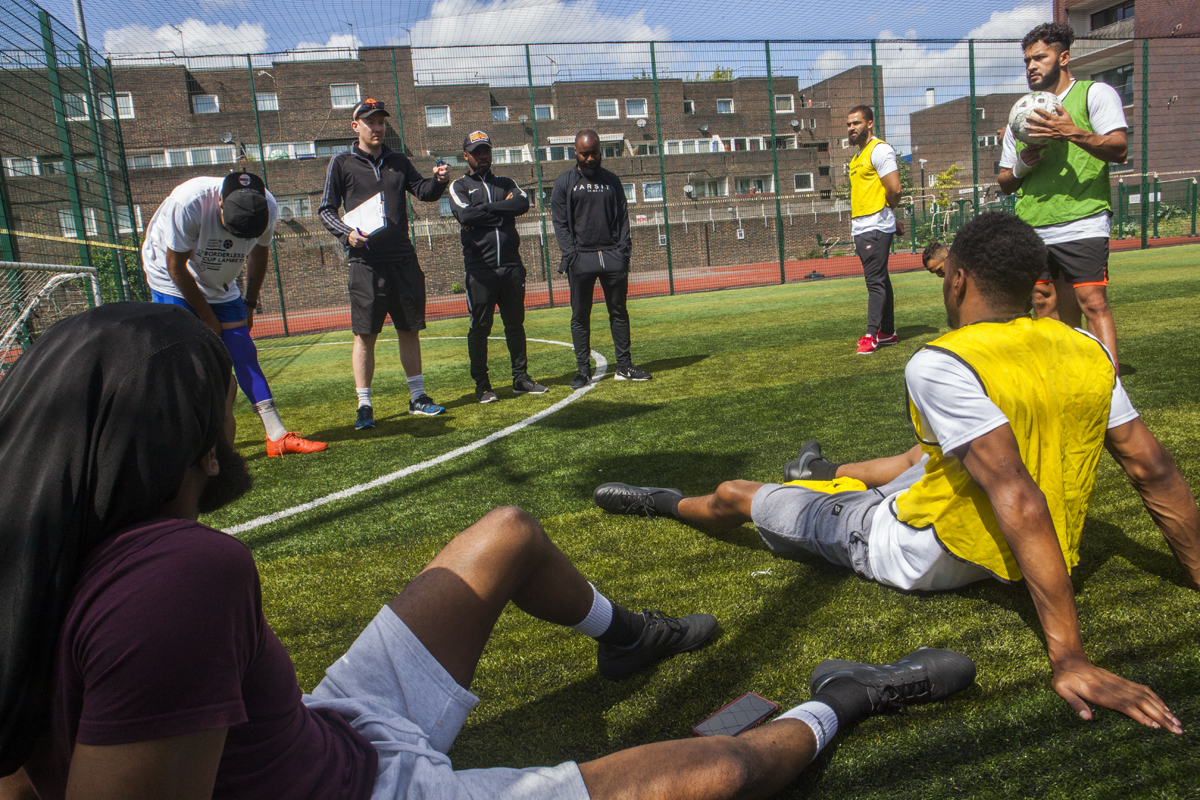
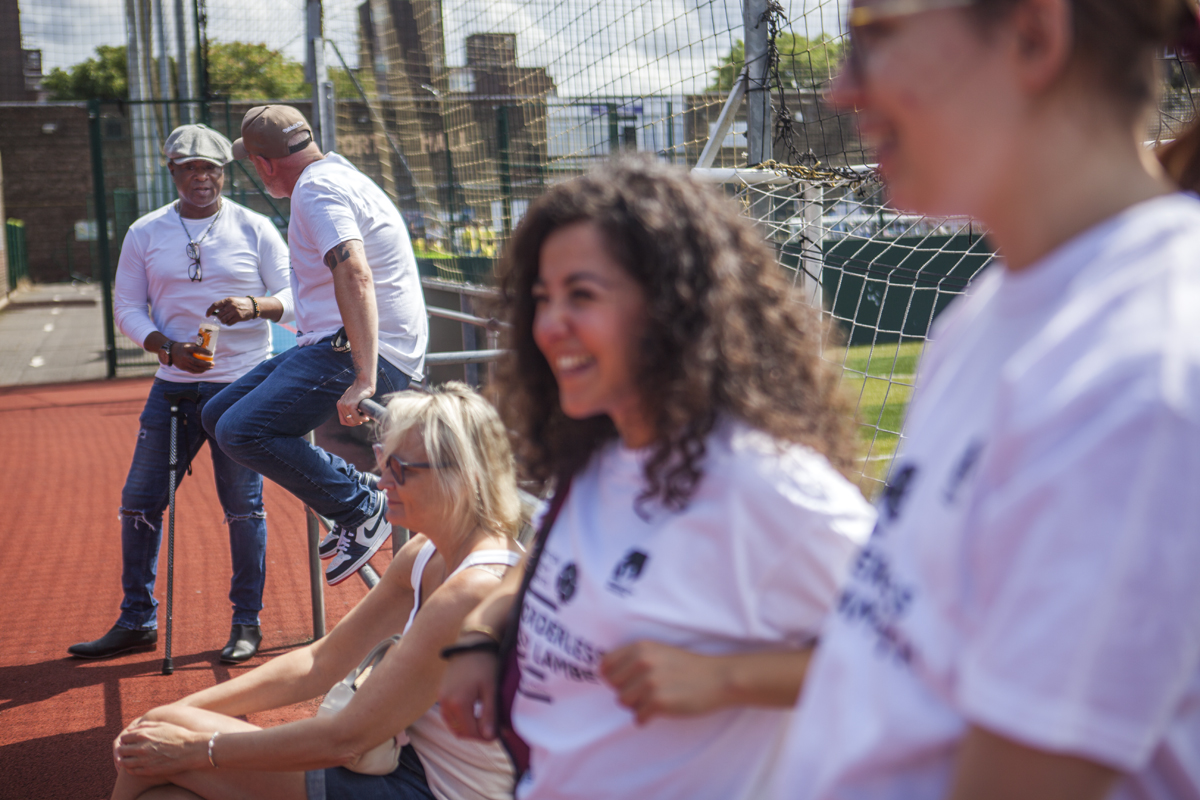
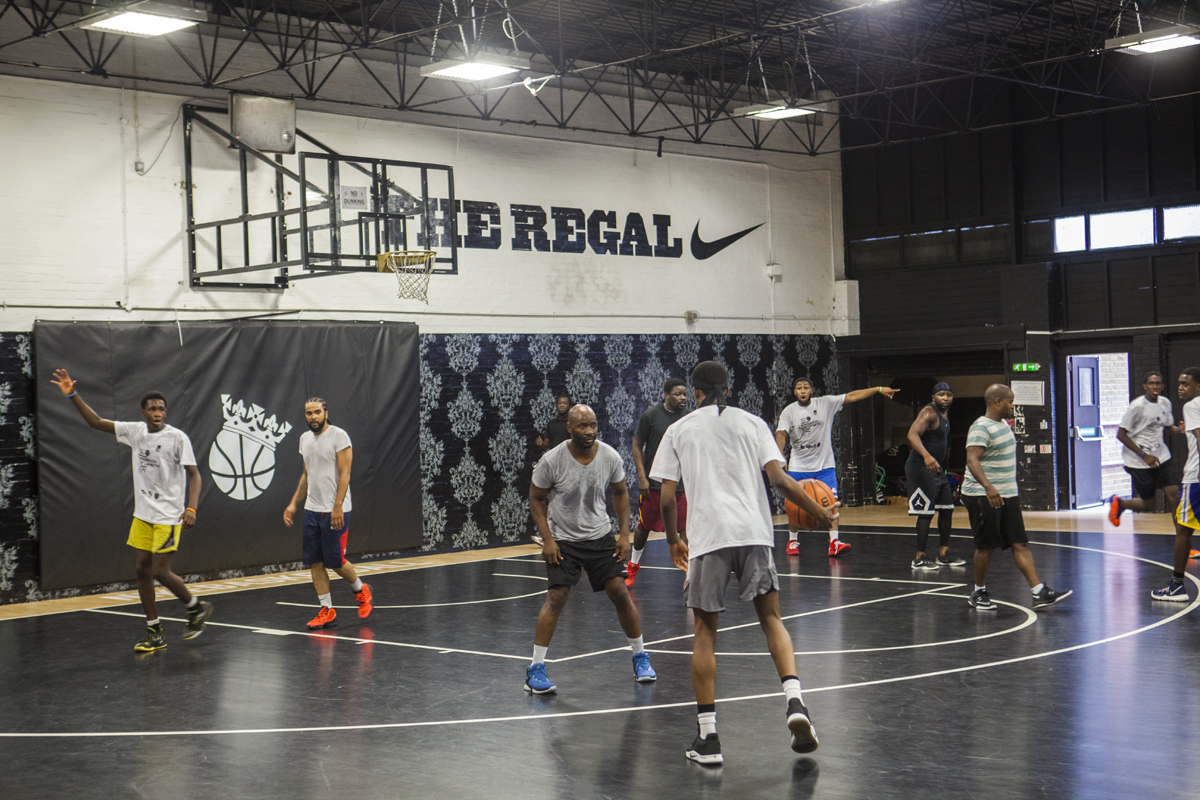
Meanwhile, volunteers from the Migration Museum collected stories from the local community, with the aim of creating a display at the Black Prince Trust Community Hub.
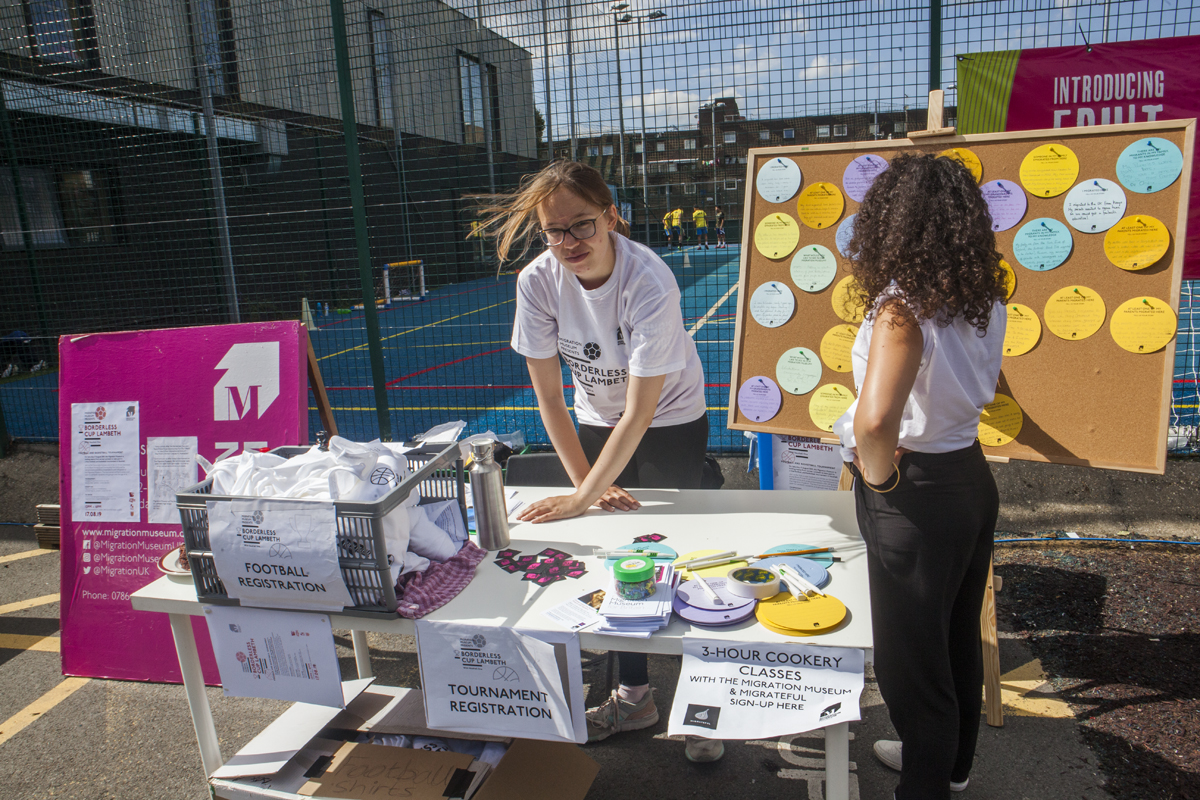
Following the action-packed afternoon, participants and visitors to the Black Prince Trust Community Day headed over to the Migration Museum, located just around the corner from the BPT on Lambeth High Street.
At the Migration Museum, visitors enjoyed music and a well-earned drink, as well as the chance to have an exclusive private viewing of our current immersive exhibition Room to Breathe.
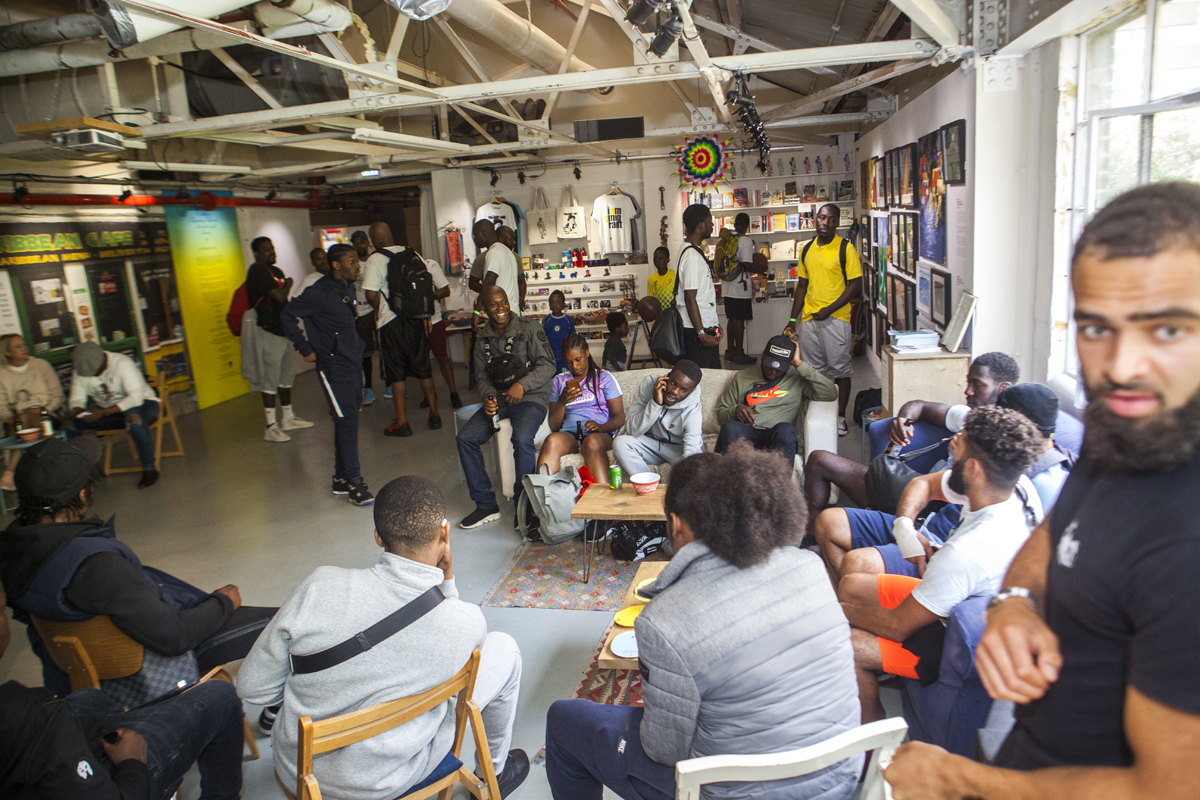
The winners of the football tournament were awarded their medals and goody bags from former professional football player, anti-racism campaigner, and friend of the museum, Paul Canoville. Paul shared his story with the audience and praised the teams’ passion and fire for the game. He also told us what theMigration Museum means to him.
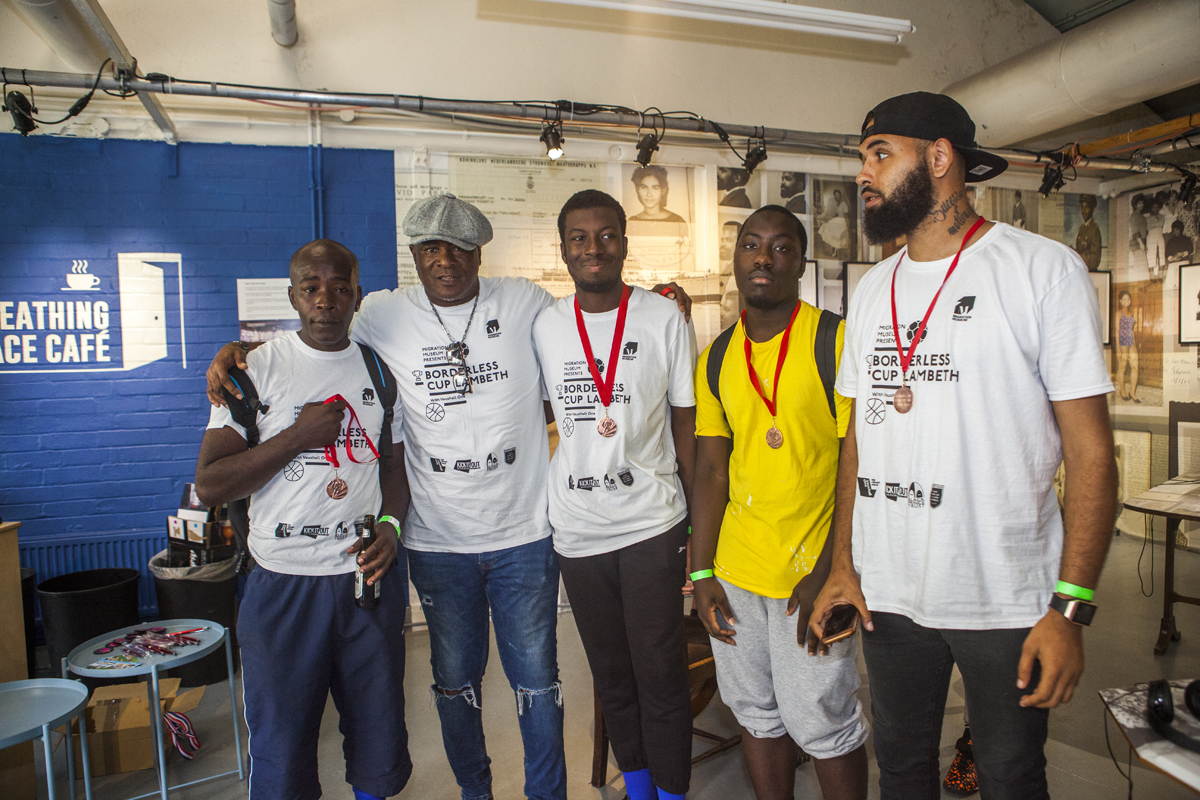
Meanwhile our basketball champions were awarded their medals by chair of Vauxhall One, Aseem Sheikh, who congratulated the players on their impressive athletic abilities.
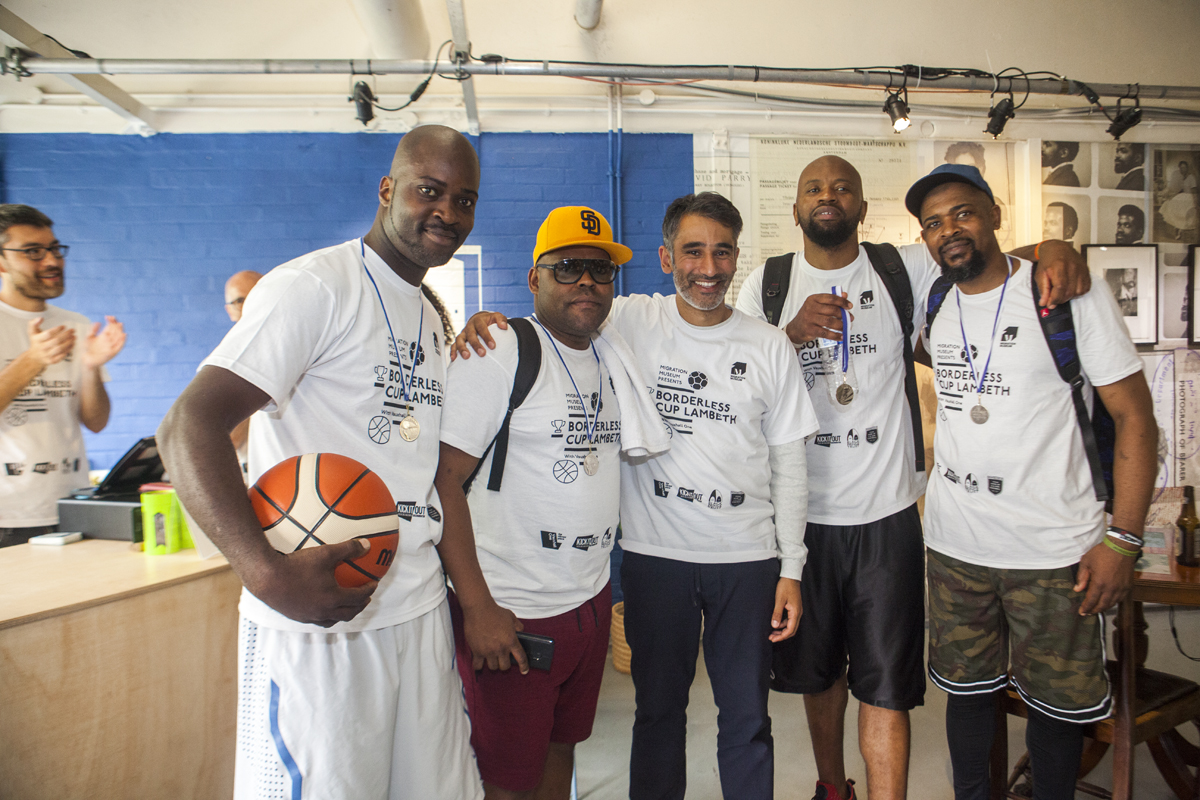
We hope that this is the first of many Borderless Cup Tournaments. We would like to give a big thank you to all the teams who participated, to the Black Prince Trust for hosting the tournaments, to Vauxhall One for making the event possible, and to everyone who shared their story with us on the day.
Sponsors and partners
This event was sponsored by Vauxhall One and supported by Kick It Out, The Black Prince Trust and Powerleague.

1 August, 2019
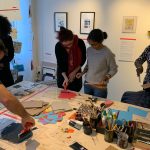
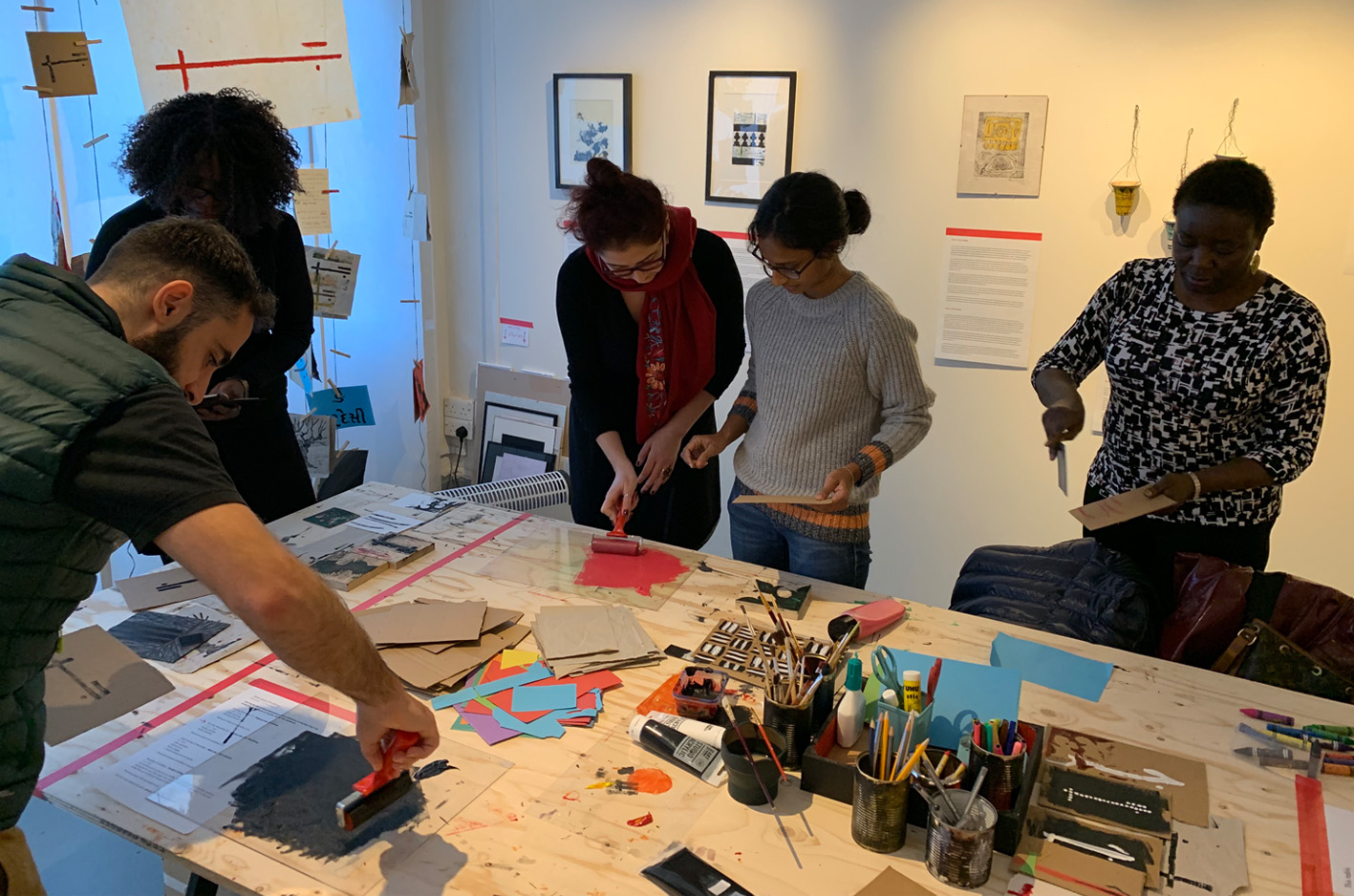
A workshop in Dima Karout’s art studio in Room to Breathe at the Migration Museum at The Workshop, November 2018 © Rudy Hajjar
Our initial staging of our Room to Breathe exhibition at the Migration Museum at The Workshop in Lambeth in 2018/19 served as a setting for a series of six residencies by London-based migrant artists. The residency programme and the art studio space in which it took place was curated by visual artist and educator Dima Karout.
Our artists-in-residence were chosen through an open call process. Each of the selected artists was invited to the art studio within the exhibition as their studio for around one month, during which time they worked from the studio, producing artworks, engaging with visitors and hosting a series of participatory workshops. As part of the residency programme, Assunta Nicolini, Andrew Steeds and Dima Karout created an online publication in the form of interviews with resident artists that we published on the Migration Museum’s blog. On this page, you will find links to these articles/interviews, as well as introductory articles about each artist – see below.
The residency series culminated in Borderless, a final group exhibition in summer 2019 curated by Dima Karout, displaying artworks created by all of our artists in residence.
Below, you can find a summary of the residency programme – the first such programme undertaken by the Migration Museum, with links to interviews with each of the artists, including information on the educational workshops and participatory activities that each artist created in their art studio space during their residencies, as well as information on Borderless, the final group exhibition, and Create, Curate Communicate, a talk with the curator and artists, which took place in June 2019.
Dima Karout, Artist and Curator in Residence (1 November–2 December 2018)
Workshops:
Meet the Artist – Dima Karout Every Sunday in November 2018
Fingerprints woodcut and linocut workshop – by Dima Karout Saturday 10 November 2018
Connect the Dots workshop – by Dima Karout Saturday 24 November 2018
Habib Sadat, Artist in Residence (6 December 2018–13 January 2019)
New Art Studio, Artists in Residence (17 January–24 February 2019)
Workshops:
New Art Studio drop-in workshop Every Saturday from January 19 until February 23 2019
Ceyda Oskay, Artist in Residence (28 February–31 March 2019)
Workshops:
Drop-in sessions with artist-in-residence Ceyda Oskay Every Sunday between 3 March and 31 March 2019
Pillow-making workshop with Ceyda Oskay Saturday 23 March 2019
Family T-shirt making workshop with Ceyda Oskay Saturday 30 March 2019
Shorsh Saleh, Artist in Residence (4 April–28 April 2019)
Blog/interview with Shorsh Saleh
Workshops:
Flying-carpet weaving workshop with Shorsh Saleh Sunday 14 April 2019 and Saturday 27 April 2019
Drop-in sessions with artist-in-residence Shorsh Saleh Every Saturday between 6 April and 27 April 2019
Belén L. Yáñez, Artist in Residence (2 May–2 June 2019)
Workshops:
Free drop-in sessions with artist-in-residence Belén L. Yañez Saturday 4 May
SEEDS – Collage workshop with Belén L.Yáñez Saturday 18 May 2019
Awakening, Sweet & Sour – Participatory performance Thursday 23 May 2019
Exhibition dates: 6 June–28 July 2019
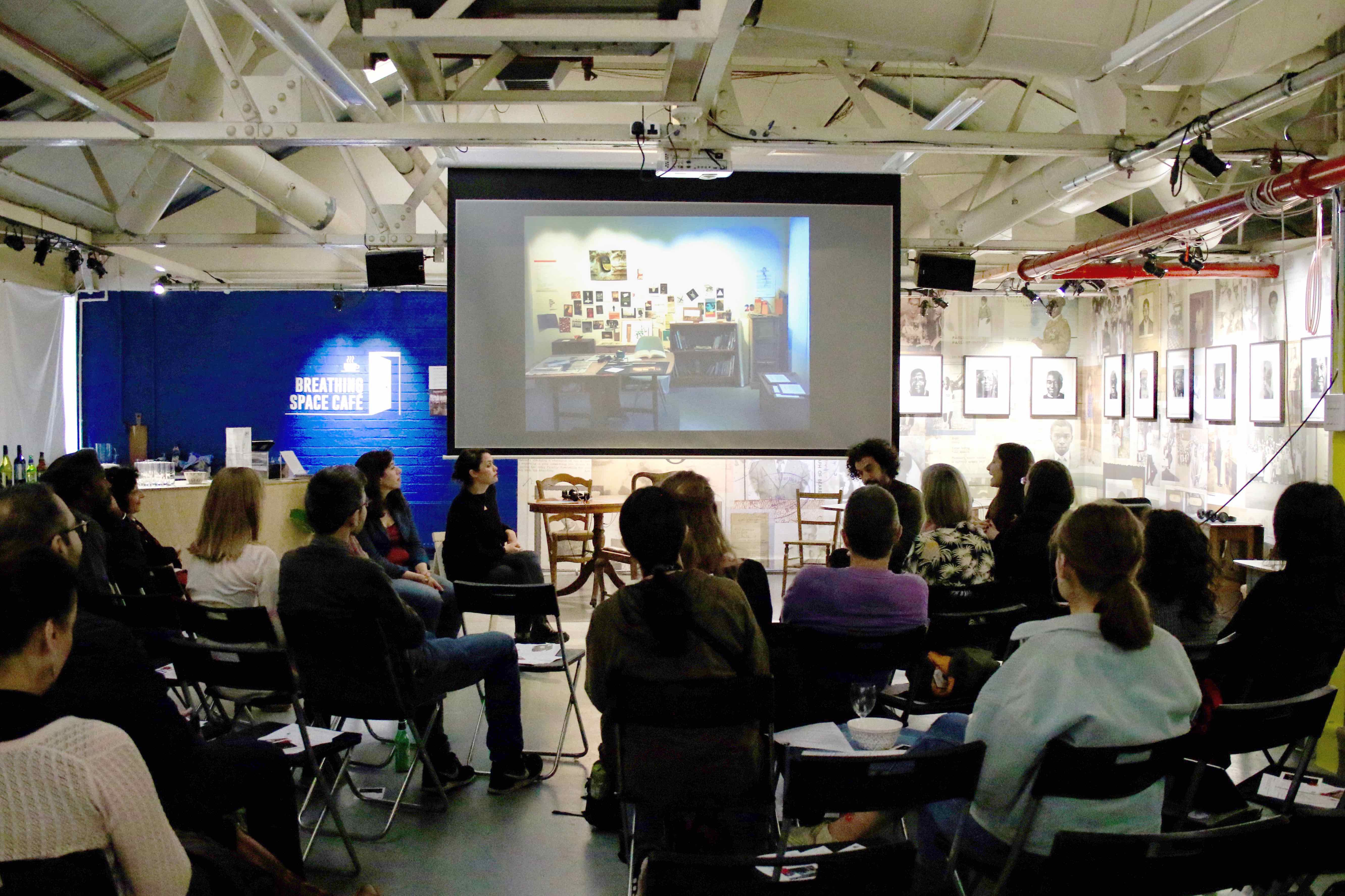
This public event, hosted by Dima Karout and featuring many of the artists who participated in the programme, was held on Thursday June 13 to officially launch the exhibition Borderless and to present and reflect on the residency programme as a whole.
Future plans
The Migration Museum hopes to stage further residency programmes for artists in the future. Sign up to our mailing list and follow us on social media to be the first to know about any future residency plans and open calls.
1 July, 2019
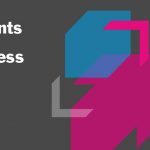
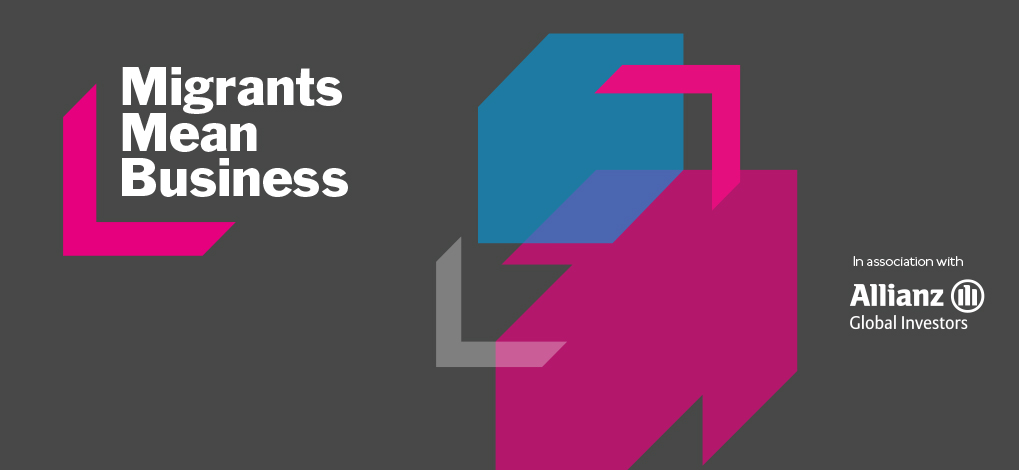
Migrants Mean Business with George Alagiah is a new podcast series from the Migration Museum, in association with Allianz Global Investors, featuring conversations with some of Britain’s most successful business leaders – all of whom have immigrant backgrounds.
Presented by broadcaster and author George Alagiah, each episode explores the personal and professional stories of some of Britain’s most prominent business leaders, offering insights into how they built their businesses, challenges and achievements, and how their backgrounds have influenced their lives and careers. These conversations, and the series as a whole, also serve to highlight the important contributions of migrants to all aspects of British life – a story which, now more than ever, needs to be told.
See below for a list of episodes – you can listen via the embedded player or by subscribing to this podcast on Apple Podcasts, Spotify, Acast, Stitcher – or wherever you get your podcasts by searching for ‘Migrants Mean Business’.
Episode 1: Sir Stelios Haji-Ioannou
To kick off our Migrants Mean Business series, we’ve got a cracking conversation with one of the most charismatic and recognisable business leaders of the past few decades – Sir Stelios Haji-Ioannou. His conversation with Daniel Franklin, executive and diplomatic editor of The Economist, ranges from shipping to dog walking, suing Netflix to going head to head with Ryanair’s Michael O’Leary.
Episode 2: Sir Lloyd Dorfman
A conversation between George Alagiah and entrepreneur and philanthropist Sir Lloyd Dorfman CBE. Lloyd founded Travelex at the age of 24 from one small shop in London and grew it to become the world’s largest foreign exchange specialist. Lloyd and George’s wide-ranging conversation, recorded live in London on 1 July, explores Lloyd’s business and philanthropic career, his family roots and Jewish identity, the essence of entrepreneurialism and whether one ever stops being a ‘migrant’.
Episode 3: Karen Blackett OBE
When Karen Blackett was growing up in Reading, aka mini Barbados, her dad told her that, as a black female, she’d have to work twice as hard to make it to the top. Karen is now UK Country Manager for WPP, the world’s largest marketing services group, and Chairwoman of MediaCom, the largest media agency in the UK, was appointed Race Equality Business Champion by the Prime Minister in 2018, and regularly ranks among Britain’s most influential business leaders. Karen is in conversation with David Abraham, Founder and CEO of Wonderhood Studios, and former chief executive of Channel 4.
10 June, 2019
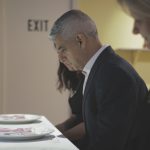
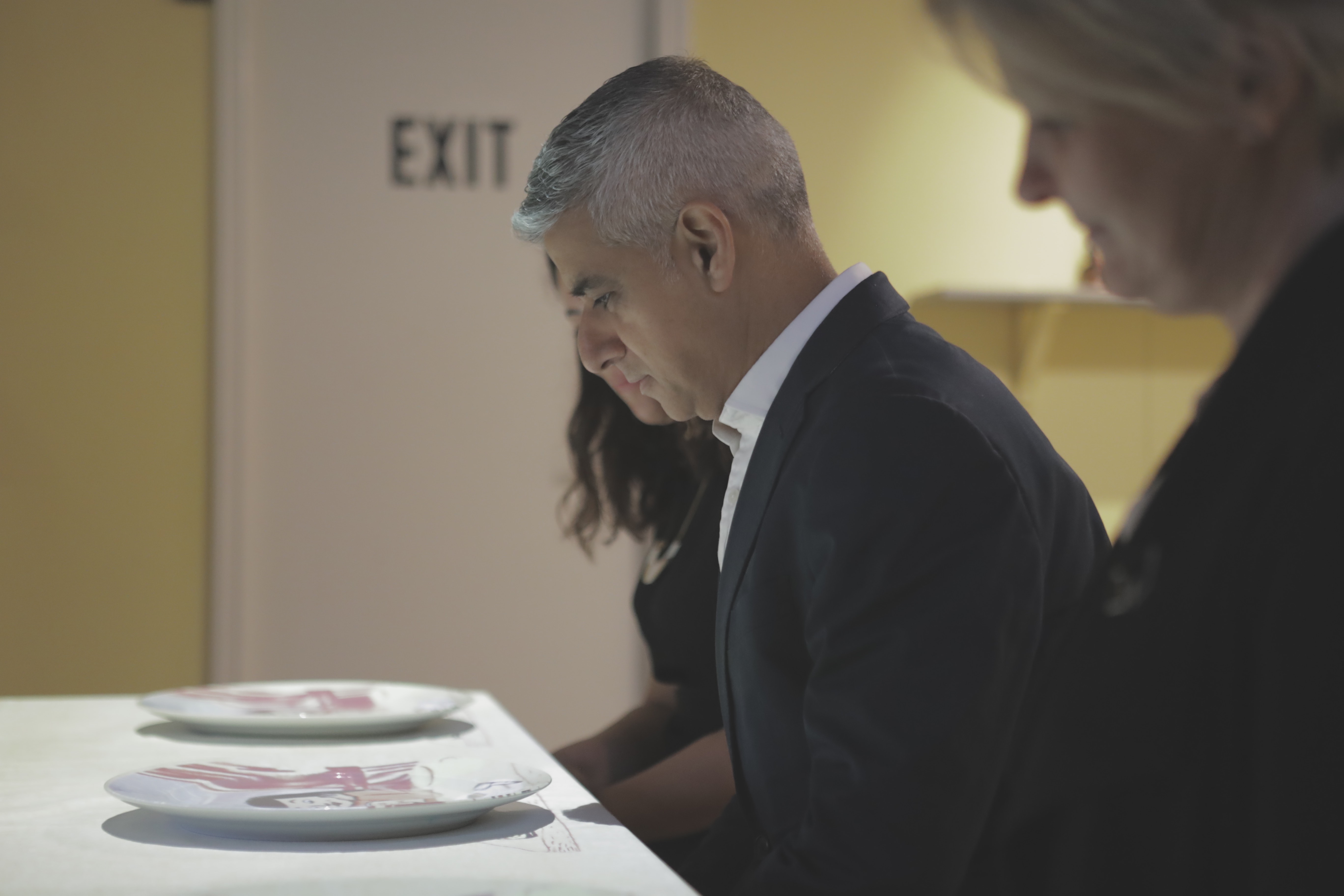
The Mayor of London, Sadiq Khan, pledged his support for a permanent national Migration Museum in London during a visit to our Migration Museum at The Workshop in Lambeth on 4 June 2019.
During his visit, Mayor Khan made himself at home in our Room to Breathe exhibition, met several of the artists who have taken up residency in the art studio in the exhibition over the past six months, and discussed diversity and difference with students from Harris Westminster Sixth Form.
He reiterated his support for the creation of a permanent Migration Museum in London and emphasised the importance of the role that our museum can play in sharing stories from generations of migrants, and in highlighting the central role of migration in shaping who we are – individually and collectively.
Sadiq Khan, Mayor of London, said:
“It’s great to be here at the Migration Museum, which tells great stories about the triumphs and the struggles for migrants to this city and this country, but also reminds us that there’s been immigration and emigration and the story goes back hundreds and hundreds of years. And I think the more of us that know more about the story of our city, the better for our city.”
Aditi Anand, the Migration Museum’s Head of Creative Content, said:
“It’s really important to us to have the Mayor’s support and the GLA’s support for our project, because we need to find a permanent home and we want to take this project to scale and to have it be right in the centre of our national consciousness and have a home for it in London.”














